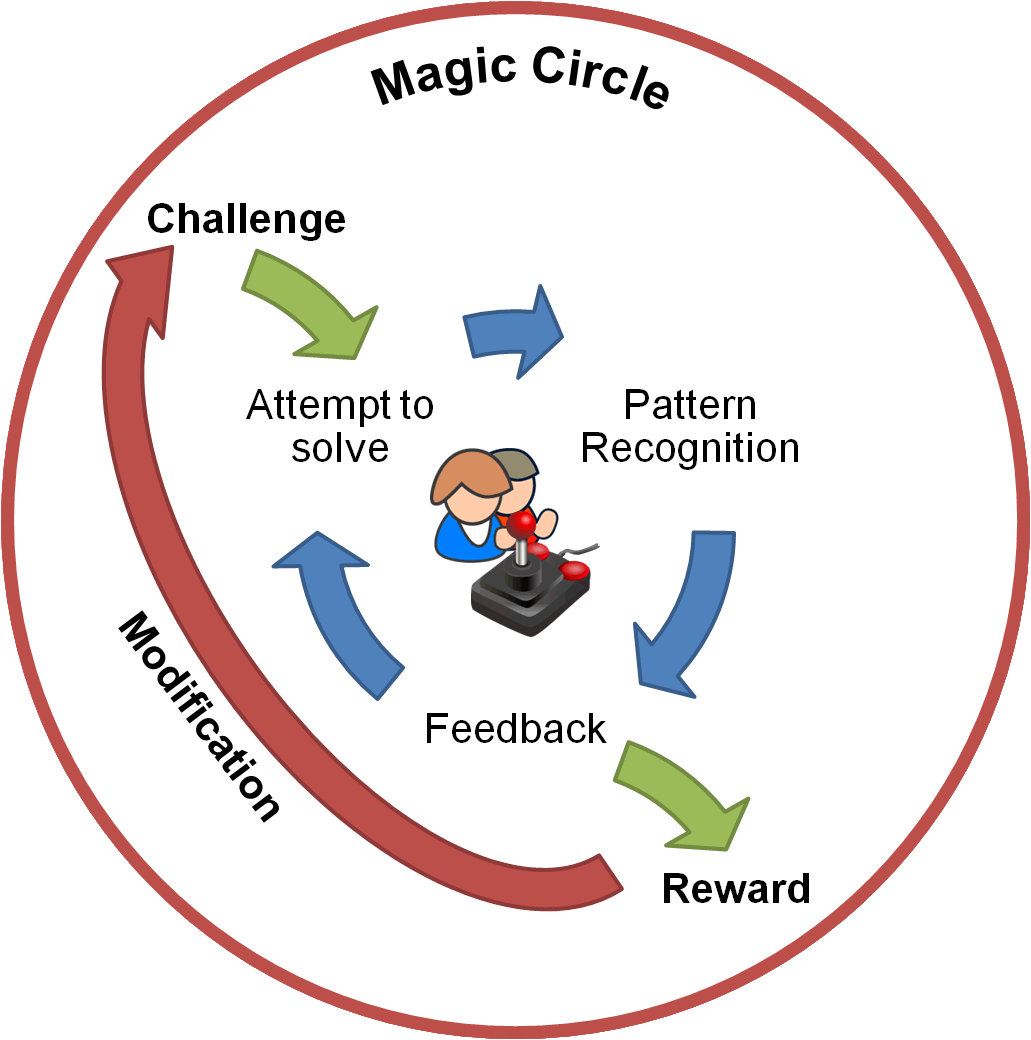As I read more and more about what makes a game a game, it becomes more and more clear where things with gamification can and do go wrong. I am not trying to say that gamification and games are the same thing, they are not, but they do share similar qualities.
At their core, games share many common traits
- Challenge
- Learning
- Pattern Recognition
- Feedback
- A safe environment to fail
- Sense of reward
The Challenge, Feedback, Reward Cycle
The diagram below tries to capture this in a cycle (because I like pictures). For the sake of continuity, I am referring to the “Safe environment to fail” as the Magic Circle.
This is a gross over simplification of games and the systems that make them “fun”, but it will do for our purposes to illustrate some of the issues we may face in gamification!
